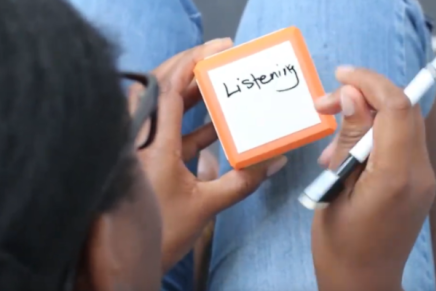Like many professionals working with young people, my first taste of youth work was in generic, local authority youth clubs. I loved much about the work. I was able to have the sort of conversations with young people I wanted and to build relationships with young people that felt right. I was good at just being an 'ok' adult in their lives, and it felt important to me to do this work. But in my five-year stint working for two different local authorities, as a sessional worker and a centre manager, I never felt like we’d resolved the youth work impact question.
How do you demonstrate the impact on a young person of a conversation, or of a trusting relationship with an adult? When you lock the building at the end of an evening session, what evidence do you have that anything has changed as a result of you being there tonight? You can, and we certainly did, chase round the youth club papping anything that might look like a developmental step being taken. Usually involving a smoothie.
When I found Just for Kids Law, eight years ago, it was a genuine relief. We definitely were not a generic youth club, or any type of youth club for that matter. But in my original role, as a 'Youth Opportunities Advocate', supporting young people who had accessed our services into education, employment and training opportunities, I was able to work in the way I wanted to work with young people, the same as I had as a youth worker. I built meaningful relationships and had transparent conversations with young people. The core work of the organisation, helping young people in crisis, took care of the hard outcomes.
But our understanding of our hard outcomes impact was by no means perfect. I'd never worked with lawyers before but found that they often had a unique and very literal focus on detail. And we were a small organisation, without substantial investment in central operations yet possible. This concoction resulted in us at one time having over one hundred, incredibly specific, individual outcomes we were working towards with young people. This included not one but four unique outcomes for improving what were then called statements of special educational needs.
In the absence of a shared and refined outcomes framework, we frontline workers also took matters into our own hands. Don't see an outcome that covers your work? Add another one! I myself added five that were around helping young people who were not British but had grown up in this country to access funding for university. Not as niche an area as it sounds but five outcomes was nonetheless a stretch.
None of this is to say that excellent work wasn't happening. It absolutely was, and we were, and are, having incredible impact. But at JfKL we are often the last resort for young people and referring agencies. In many ways that is the reason we exist, to utilise our specialist expertise and resources to resolve complex, and seemingly unresolvable, circumstances. The work is difficult, and time-consuming, and the situations that young people have been placed in are often dire. Given this, outcomes should not be easy to come by and we shouldn't expect a 95% success rate in any areas of our work. Rather, our success rate in achieving hard outcomes with young people should reflect the challenging nature of the work that we routinely undertake.
This is why, earlier this year, we threw out our old outcomes framework, that had grown from a spreadsheet started in a musty office of a fledgling organisation over a decade ago, and started again. We were lucky to receive pro bono support from Boston Consultancy Group (BCG) to start this work and we later also enlisted charity experts Trust Impact to refine it further. First BCG and then Trust Impact challenged our staff team to boil down our outcomes to a much simpler framework, taking into account the range of work that we do across a range of areas of need.
This was a necessarily painful process and made us realise just how elusive these hard outcomes are. What if it takes two years to resolve an immigration application due to the workings of the Home Office and the 'hostile environment' agenda? So be it. We trimmed down to sixteen hard outcomes across eight different areas of support we provide for young people. These genuine outcomes are hard to achieve but are ‘binary’ and so relatively easy to measure. They are either achieved or they are not. They include, for example, “Young person avoided homelessness”, “Young person received out of court disposal” and “Young person accessed social services support”.
On the advice of BCG, we also developed a new SMS client survey consisting of three simple questions. This survey is automatically sent to all of the young people we start working with, four months after they open a case with us.
- Has your situation improved since you've been supported by Just for Kids Law?
- Do you feel more confident about facing problems since you've had help from Just for Kids Law?
- Do you know more about your rights and entitlements since you've been working with Just for Kids Law?
We have already launched the SMS survey and have started a three-month pilot of our new outcomes framework
with a small team of frontline colleagues. This is a genuine pilot and we will adapt and respond to feedback from the team, and young people and there we will be further work to ensure a culture of understanding and recording our impact is embedded across the frontline team. But we are confident that we are moving in the right direction and these two tools together will help us to better understand our impact.
Joel Carter is Director of Programmes and Participation at Just for Kids Law.
